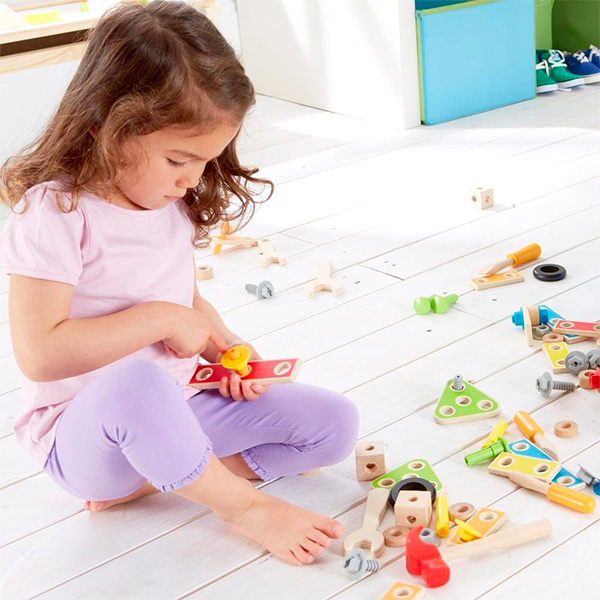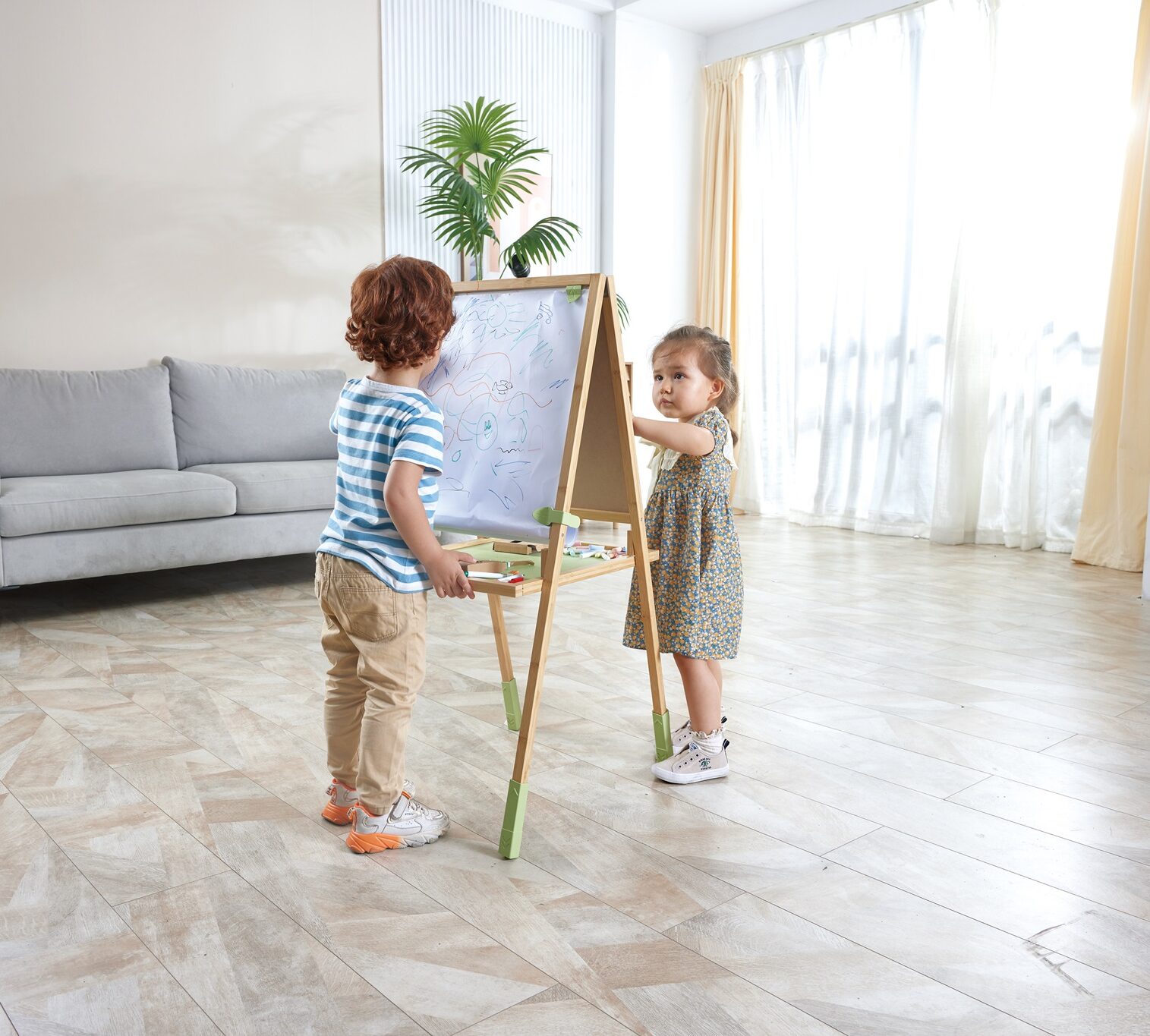As parents, we love the time spent with our children. But let’s be honest: we all need a breather sometimes. That's where independent play comes in handy. Especially during those long school breaks when routines go out the window. Not only does it give us a break, but it’s also a great learning experience for our children.
Here’s why we love this type of play and some tips for implementing this play style:

Independent play is a win-win. For children’s learning and development, it fosters creativity, builds problem-solving skills, and boosts self-confidence. They learn to entertain themselves, which is a valuable life skill. For us parents, it means a chance to simply enjoy a moment of peace.
So, what toys encourage this play style? Here are some top picks that’ll keep your toddlers engaged and playing solo:
Building blocks are a classic for a reason. They ignite imagination, improve fine motor skills, and can keep little hands occupied for hours. Whether wooden blocks or magnetic tiles, these toys allow young children to construct their own worlds. As an added bonus, they also develop fine motor skills!
Puzzles are another great option. They challenge young minds, improve cognitive abilities, and enhance concentration. Start with simple, chunky puzzles for younger toddlers and gradually move to more complex ones as they grow. Watching your child figure out how to piece together a puzzle is incredibly rewarding – and it gives you a nice stretch of quiet time.
Art supplies like crayons, markers, stickers, and paper can turn any child into an artist. Set up an art station with all the essentials and let their imagination run wild. Drawing, colouring, and crafting not only spark creativity but also help with hand-eye coordination and fine motor skills. Plus, you get to enjoy their beautiful (and sometimes abstract) masterpieces.
Pretend play sets, such as toy kitchens, doctor kits, or tool benches, allow children to explore different roles and practise gross motor skills. This kind of role play is great for developing social skills, language, and empathy. When they’re immersed in pretend play, they’re not only having fun but also learning about real life.
Interactive books with flaps to lift, buttons to press, or textures to feel are perfect for keeping little hands and minds busy. These books can promote literacy and a love of reading from an early age. Plus, they’re an excellent way for children to enjoy some quiet time while you do the same.
Independent play is a fantastic way to nurture your child’s development while also giving yourself a well-deserved break. It’s an easy way to encourage children to entertain themselves starting from their early years.
By providing the right toys and creating an inviting play environment, you can encourage your toddler to explore, learn, and play on their own, giving you those golden moments of peace. So, go ahead, set up that play area, and enjoy some “me time”. You’ve earned it!
